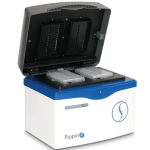Mendelspod has turned out another terrific podcast, this one with Kari Stefansson, and we’re proud to have sponsored the thought-provoking discussion.
As most people in the field know, Stefansson earned his fame as founder of DeCode Genetics, which has spent 20 years analyzing the genetics of the Icelandic population. Now part of Amgen, the team continues to churn out publications characterizing genomic variation.
Stefansson spoke with Mendelspod host Theral Timpson about the value of studying an island population, which has a pronounced founder effect that has left many Icelanders with genetic variants that are quite rare in other populations. These variants have been associated with increased risk for Alzheimer’s disease, various forms of cancer, heart attacks, and more. There are also some protective variants, such as a heart-protective gene that has become the focus of a drug discovery program at Amgen.
We were especially interested in Stefansson’s stand on the tug-of-war between societal value of genetic information and each person’s right to privacy. He points out that advances in medicine have come from the generosity of previous patients who shared their medical data, suggesting that keeping this information private may be “antisocial.” Later in the discussion, Stefansson says that he’s been lobbying Icelandic leaders to let him identify everyone with a particularly high-risk BRCA mutation from the national genetic database so these people can be contacted and given treatment options, but opponents argue that this violates a person’s right not to know such information.
Looking forward, Stefansson said that the human brain is “the last frontier in biology” and that we have a long way to go to understand how our brains make us who we are, how they define our species, how they trigger emotions, and more. His team is combining genetic studies with cognitive testing to better understand this organ. Early findings have demonstrated that a variant linked to schizophrenia risk is also associated with creative thinking.
For all that and much more, check out the full podcast!






